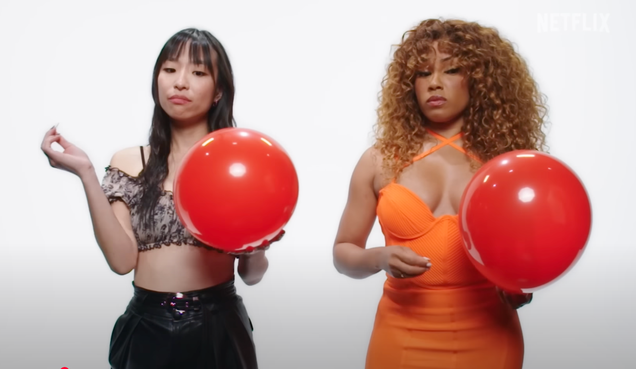 Getty Images
Getty Images
Masks have become a necessity. Here’s how to pick the right one, and wash it.
In the midst of the Covid-19 pandemic, face masks have become a necessity, like keys or your wallet — you can’t leave home without them. For the reusable cloth masks popular with so many people, that means a lot of laundry.
The Centers for Disease Control and Prevention (CDC) recommends wearing masks in public settings, mainly to protect others from carriers of the virus. Many states, restaurants, bars, grocery stores, and major retailers also require patrons to wear masks in order to reduce the spread of Covid-19.
Protective face masks have become a controversial touchpoint of the pandemic, with some Americans complaining and even having outbursts about wearing them. But science shows that masks are essential to preventing the spread of the virus.
“We know the effectiveness of face masks already. There is the evidence base out there,” said Dr. Simon Kolstoe, a senior lecturer in evidence-based health care at the University of Portsmouth in the United Kingdom.
But there’s one question that dogs mask-wearers: Do you really have to wash them after every use?
The answer is yes.
“It’s definitely recommended to wash that mask every day,” said Dr. Ravina Kullar, an infectious disease specialist and epidemiologist. Dr. Kullar points out that the purpose of the mask is to prevent the virus from spreading, so if there are any virus particles on yours, wearing an unwashed mask defeats the purpose.
Still, despite this advice, surface transmission is not thought to be a major vector of coronavirus spread. The primary transmission of spreading is person-to-person contact. The recommendation to wash your mask comes out of an abundance of caution, as well as the object’s close proximity to respiratory output.
The CDC also recommends washing masks: “Masks should be washed after each use. It is important to always remove masks correctly and wash your hands after handling or touching a used mask,” the website says. According to the CDC, taking off your mask correctly means handling it only by the ear loops or ties, folding it to be placed in the washing machine, and washing your hands immediately after.
Cloth masks can be washed by hand or in a washing machine. Surgical masks, another popular option, cannot be washed and should be discarded after one use. There is very little “peer-reviewed” information about how to wash an N95 mask. Some potential options include vaporized hydrogen peroxide, using dry heat, or UV light — methods that aren’t really suitable for experimentation at home.
For cloth masks, if you’re using a washing machine, the CDC recommends regular detergent and “the warmest appropriate water setting for the cloth used to make the mask.” If you’re washing your mask by hand, you should prepare a bleach solution and soak your mask in it for five minutes, then rinse in cool or room-temperature water. Mask filters should be washed by hand.
There are also certain practices to ensure you wash your mask effectively without wearing down the fabric too much.
Patric Richardson, the self-styled Laundry Evangelist, said that a cloth mask can sustain around 100 washes if it isn’t run through the dryer, and 50 if it is. He also explained that the elastic parts of the mask are likely to wear down more quickly than the actual cloth.
“Depending on the fabric, and of course that’s the million-dollar question with a handmade mask, but most fabrics are very durable for about 100 washes if they’re not in the dryer,” he said.
Richardson also recommends wearing face masks made of cotton, which he said is most durable. While other materials like silk or even using bandannas are popular, they are often less effective and don’t last as long. In addition to picking a good material, Richardson stressed using detergent sparingly.
“The skin on your face is pretty sensitive so you want to make sure that you don’t use very much detergent because you want to rinse it 100 percent clean,” he said.
In addition to maintaining good washing practices, the type of face mask you use matters, too. Dr. Kolstoe made a video, testing different kinds of masks by attempting to blow out a lit match. If you can blow out the match, the mask is ineffective. And if you can’t, it works.
“If you’re wearing this mask to stop you blowing your breath over other people, it makes sense that if you could blow a match out [or] blow a candle out that’s directly in front of you then the mask isn’t being particularly effective,” he said.
Eventually, an overwashed mask could become more porous and lose its usefulness. When that happens, it’s time to get some new masks, either by buying them or making your own. Whichever you choose, just be sure you clean them after each use.
Support Vox’s explanatory journalism
Every day at Vox, we aim to answer your most important questions and provide you, and our audience around the world, with information that has the power to save lives. Our mission has never been more vital than it is in this moment: to empower you through understanding. Vox’s work is reaching more people than ever, but our distinctive brand of explanatory journalism takes resources — particularly during a pandemic and an economic downturn. Your financial contribution will not constitute a donation, but it will enable our staff to continue to offer free articles, videos, and podcasts at the quality and volume that this moment requires. Please consider making a contribution to Vox today.
from Vox - All https://ift.tt/3gVj3HV


